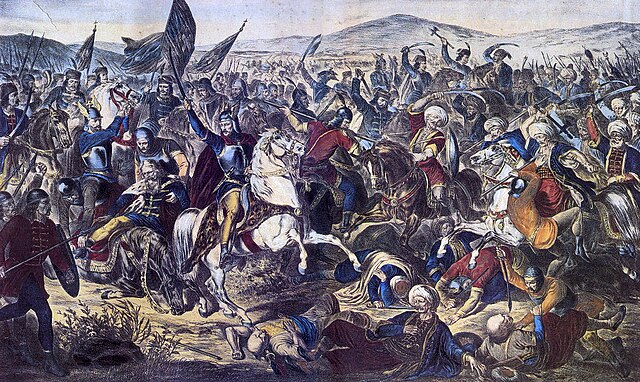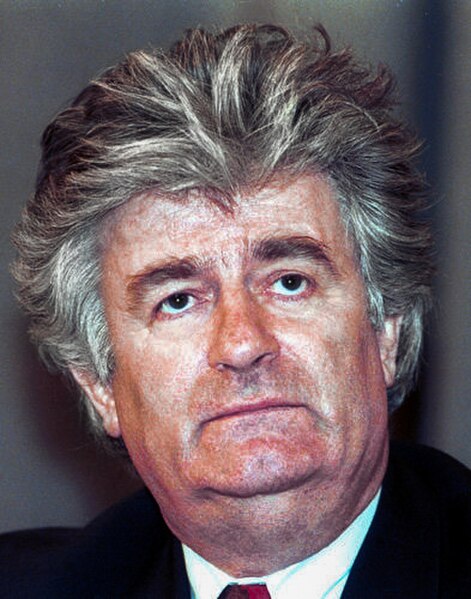Serbian nationalism asserts that Serbs are a nation and promotes the cultural and political unity of Serbs. It is an ethnic nationalism, originally arising in the context of the general rise of nationalism in the Balkans under Ottoman rule, under the influence of Serbian linguist Vuk Stefanović Karadžić and Serbian statesman Ilija Garašanin.
Serbian nationalism was an important factor during the Balkan Wars which contributed to the decline of the Ottoman Empire, during and after World War I when it contributed to the dissolution of the Austro-Hungarian Empire, and again during the breakup of Yugoslavia and the Yugoslav Wars of the 1990s.
Monument to Karađorđe and Church of Saint Sava in Belgrade
Vuk Karadžić, Serbian linguist.
Ilija Garašanin, Serbian statesman.
Battle of Kosovo (1870), painting by Adam Stefanović, a depiction of the Battle of Kosovo of 1389
After a period of political and economic crisis in the 1980s, the constituent republics of the Socialist Federal Republic of Yugoslavia split apart, but the unresolved issues caused a series of inter-ethnic Yugoslav Wars. The wars primarily affected Bosnia and Herzegovina, neighbouring parts of Croatia and, some years later, Kosovo.
Serbian President Slobodan Milošević's unequivocal desire to uphold the unity of Serbs, a status which was threatened by each republic breaking away from the federation, in addition to his opposition to the Albanian authorities in Kosovo, further inflamed ethnic tensions.
Croatian President Franjo Tuđman
Bosnian Muslim President Alija Izetbegović
Bosnian Serb President Radovan Karadžić








